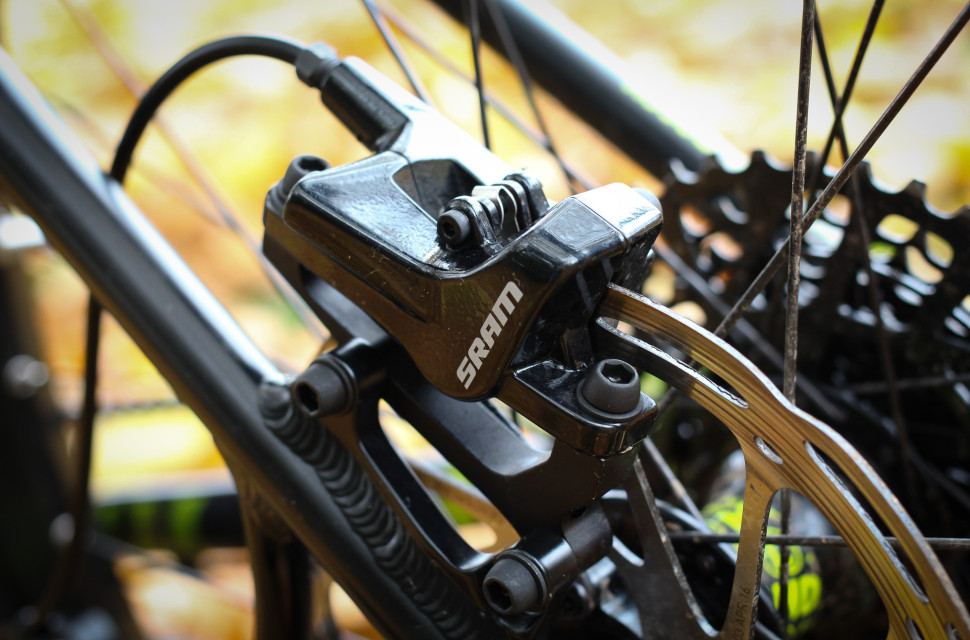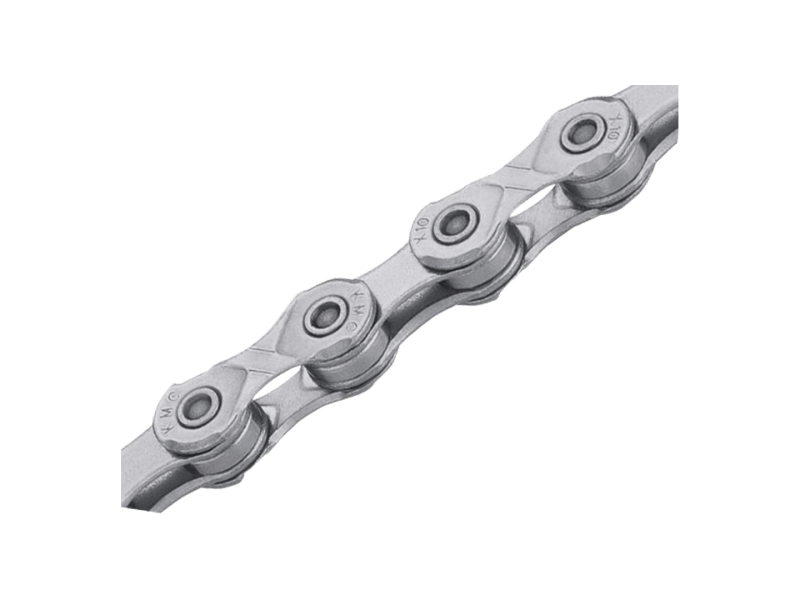To clean disc brakes, remove the wheel and use a brake cleaner spray. Wipe with a clean cloth until dry.
Maintaining clean disc brakes is crucial for optimal braking performance and safety. Over time, dirt, grime, and brake dust accumulate, reducing brake efficiency. Regular cleaning helps prevent squeaking and prolongs the lifespan of your braking system. Use a high-quality brake cleaner and ensure all components are thoroughly cleaned.
Pay special attention to the rotor and brake pads. Avoid using oil-based products as they can damage brake components. Always check for wear and tear during cleaning to address any issues promptly. Keeping your disc brakes clean ensures a smooth, quiet, and safe ride, enhancing overall vehicle performance. Regular maintenance is key to reliable braking.
Importance Of Clean Disc Brakes
Keeping your disc brakes clean is essential for your vehicle's safety and performance. Dirt and grime can accumulate on the disc brakes over time. This buildup can lead to serious issues, affecting your driving experience.
Enhanced Safety
Clean disc brakes ensure your vehicle stops quickly and safely. When disc brakes are dirty, they might not work effectively. This can increase the stopping distance, posing a risk to you and others. Regularly cleaning your disc brakes removes harmful debris. This helps maintain optimal braking power.
A well-maintained brake system can prevent potential accidents. It ensures that your vehicle responds promptly when you need to stop. Clean disc brakes are a key factor in ensuring road safety.
Improved Performance
Disc brakes perform better when they are clean. Dirt and grime can cause the brake pads to wear out faster. This reduces their efficiency over time. Clean disc brakes help in maintaining a smooth and quiet braking experience.
Regular cleaning also extends the life of the brake components. This can save you money on repairs and replacements. A clean braking system ensures that your vehicle runs smoothly and efficiently.
| Benefits | Details |
|---|---|
| Enhanced Safety | Quick and effective stopping, reducing accident risks |
| Improved Performance | Smoother braking and extended life of brake components |
Maintaining clean disc brakes is crucial for both safety and performance. Regular cleaning ensures your vehicle stops efficiently and performs at its best.

Credit: off.road.cc
Signs Your Disc Brakes Need Cleaning
Disc brakes are essential for safe driving. Knowing the signs your brakes need cleaning can prevent accidents. Clean brakes ensure your vehicle stops effectively.
Squeaking Noises
If your disc brakes make squeaking noises, they might need cleaning. Dirt and grime can cause this noise. Regular cleaning can prevent this issue. A high-pitched squeak is a common sign. It indicates that dirt is trapped between the brake pads and rotors.
Reduced Braking Power
Reduced braking power is a serious issue. It means your car takes longer to stop. This can be dangerous. Cleaning your disc brakes can restore their effectiveness. A clean brake system provides better stopping power. Always check your brakes if you notice reduced performance.
| Sign | Description |
|---|---|
| Squeaking Noises | High-pitched sounds due to dirt and grime. |
| Reduced Braking Power | Longer stopping distance, indicating dirty brakes. |
- Regular cleaning ensures safety.
- Prevents wear and tear.
- Maintains optimal braking performance.
- Listen for unusual sounds.
- Check for delayed stopping.
- Clean brakes periodically.
Essential Tools For Cleaning
To keep your disc brakes performing at their best, regular cleaning is essential. Using the right tools ensures you get rid of dirt and grime efficiently. Below, we'll explore the essential tools for cleaning your disc brakes.
Cleaning Solutions
Choosing the right cleaning solutions can make a big difference. Here's what you need:
- Isopropyl Alcohol: Great for removing oil and grease.
- Disc Brake Cleaner: Specifically designed for brakes, ensuring no residue.
- Soap and Water: Ideal for mild cleaning tasks.
Brushes And Rags
Using the right brushes and rags helps in cleaning every nook and cranny. Consider the following:
| Tool | Purpose |
|---|---|
| Soft-Bristle Brush | Removes loose dirt without scratching. |
| Stiff-Bristle Brush | Targets stubborn grime and brake dust. |
| Microfiber Rag | Wipes down surfaces without leaving lint. |
| Old Toothbrush | Reaches tight spots and crevices. |
These tools are easy to find and very effective.
Preparing Your Bike For Brake Cleaning
Before you start cleaning your bike's disc brakes, it's important to prepare your bike properly. This ensures a thorough cleaning and prevents damage. Follow these steps for a smooth process.
Securing The Bike
Secure your bike on a stable surface. Use a bike stand if available. This keeps the bike upright and stable. If you don't have a stand, lean the bike against a wall. Make sure it won't tip over. Stability is key for safety.
Removing The Wheels
Remove the wheels to access the brakes. Start by loosening the quick-release lever or axle nuts. Carefully take off the front wheel first. Place it aside in a safe spot. Then, repeat the process for the rear wheel. This exposes the brake calipers for cleaning.
| Step | Description |
|---|---|
| 1 | Secure the bike on a stable surface. |
| 2 | Use a bike stand or lean against a wall. |
| 3 | Loosen the quick-release lever or axle nuts. |
| 4 | Remove the front wheel carefully. |
| 5 | Remove the rear wheel next. |
Now, your bike is ready for brake cleaning. Follow these steps for a clean and safe ride.
Step-by-step Cleaning Process
Maintaining clean disc brakes is crucial for safe biking. A regular cleaning routine ensures optimal performance. Follow this step-by-step cleaning process to keep your brakes in top shape.
Cleaning The Rotors
Cleaning the rotors is the first step. Gather your cleaning supplies:
- Isopropyl alcohol or dedicated brake cleaner
- Clean, lint-free cloths
- Soft-bristle brush
Follow these steps to clean the rotors:
- Remove the wheel from your bike.
- Spray the rotor with isopropyl alcohol.
- Wipe the rotor with a clean cloth.
- Use a soft-bristle brush for stubborn dirt.
- Wipe the rotor again to ensure it is dry.
Cleaning The Brake Pads
Next, clean the brake pads. You will need:
- Isopropyl alcohol
- Sandpaper (fine grit)
- Clean cloths
Follow these steps to clean the brake pads:
- Remove the brake pads from the caliper.
- Inspect the pads for wear and tear.
- Sand the surface lightly to remove glaze.
- Wipe the pads with isopropyl alcohol.
- Allow the pads to dry completely.
By following these simple steps, you ensure your disc brakes remain effective and safe.

Credit: www.youtube.com
Reassembling And Testing
After cleaning your disc brakes, it's time to reassemble and test. This ensures your brakes function properly. Follow these steps carefully for best results.
Reattaching The Wheels
Start by reattaching the wheels to your bike. Align the wheel hub with the fork dropouts. Ensure the axle fits snugly into place.
- Insert the quick-release skewer or axle through the hub.
- Tighten the skewer or axle nuts securely.
- Check the wheel alignment. Ensure it spins freely without wobbling.
Make sure to inspect the brake calipers. Ensure they are centered over the rotor. If needed, adjust the calipers for proper alignment.
Testing Brake Performance
Testing the brake performance is crucial. Follow these steps to ensure your brakes work perfectly.
- Spin the wheel and gently apply the brake lever.
- Check for any unusual noises or vibrations.
- Ensure the brake pads make even contact with the rotor.
If you notice any issues, adjust the brake pads or calipers. Ensure they are properly aligned.
| Test | Expected Outcome |
|---|---|
| Wheel Spin | Free and Smooth |
| Brake Application | Even and Quiet |
| Pad Contact | Even on Rotor |
Finally, take your bike for a short ride. Test both front and rear brakes. Ensure they stop your bike effectively and safely.
Common Mistakes To Avoid
Maintaining your disc brakes is crucial for safety. But, many people make common mistakes. These mistakes can reduce brake performance. Let's explore the most common errors.
Using Wrong Cleaners
Using the wrong cleaners can damage your disc brakes. Not all cleaners are made for brakes. Some cleaners contain harmful chemicals. These chemicals can corrode the brake components. Always use cleaners made for disc brakes. Check the label before buying.
Avoid household cleaners. They often have oils or waxes. These substances can reduce brake efficiency. Specialized brake cleaners are designed to clean without leaving residue.
Skipping Lubrication
Lubrication is vital for disc brakes. Many skip this step. Lack of lubrication causes friction. This can lead to wear and tear. Always lubricate the moving parts. Use high-quality brake lubricants. They reduce friction and extend brake life.
Follow these steps for proper lubrication:
- Clean the brake parts thoroughly.
- Apply the lubricant to the moving parts.
- Ensure even coverage.
- Remove excess lubricant.
Never use too much lubricant. Excess can attract dirt. This can impair brake performance.
| Task | Do | Don't |
|---|---|---|
| Cleaning | Use brake-specific cleaners | Use household cleaners |
| Lubrication | Apply evenly | Over-apply lubricant |

Credit: www.youtube.com
Maintenance Tips For Long-lasting Brakes
Clean disc brakes are crucial for safe driving. Regular maintenance can extend their life. This guide offers essential tips to keep your brakes in top condition.
Regular Inspections
Regular inspections are vital. Check your brakes every month. Look for wear and tear. Make sure the brake pads are not thin. If they are, replace them immediately.
- Inspect brake pads monthly
- Check for any unusual noises
- Ensure the rotors are smooth
Proper Storage
Proper storage helps maintain clean disc brakes. Keep your vehicle in a dry place. Moisture can cause rust. Rust affects brake performance.
Use a car cover if you park outside. This protects from dust and debris. Clean your car regularly. Remove any build-up on the brakes.
| Storage Tips | Benefits |
|---|---|
| Store in a dry place | Prevents rust |
| Use a car cover | Protects from dust |
| Clean regularly | Removes build-up |
Frequently Asked Questions
How Often Should I Clean My Disc Brakes?
You should clean your disc brakes every month or after riding in wet or muddy conditions. Regular cleaning ensures optimal performance and extends the lifespan of your brakes.
What Tools Do I Need To Clean Disc Brakes?
To clean disc brakes, you'll need isopropyl alcohol, a clean rag, and a soft brush. These tools effectively remove dirt, oil, and debris without damaging the brake components.
Can I Use Water To Clean Disc Brakes?
It's best to avoid using water on disc brakes. Water can introduce contaminants and cause rust. Instead, use isopropyl alcohol, which evaporates quickly and leaves no residue.
Why Are My Disc Brakes Squeaking?
Squeaking disc brakes often indicate dirt or oil contamination. Cleaning the rotor and pads with isopropyl alcohol usually resolves the issue, restoring quiet and effective braking.
Conclusion
Regular maintenance of your disc brakes ensures optimal performance and safety. Clean brakes enhance your driving experience. Follow the steps outlined to keep your brakes in top condition. Consistent care extends the lifespan of your braking system. Enjoy smoother rides and greater confidence on the road with clean disc brakes.

No comments:
Post a Comment